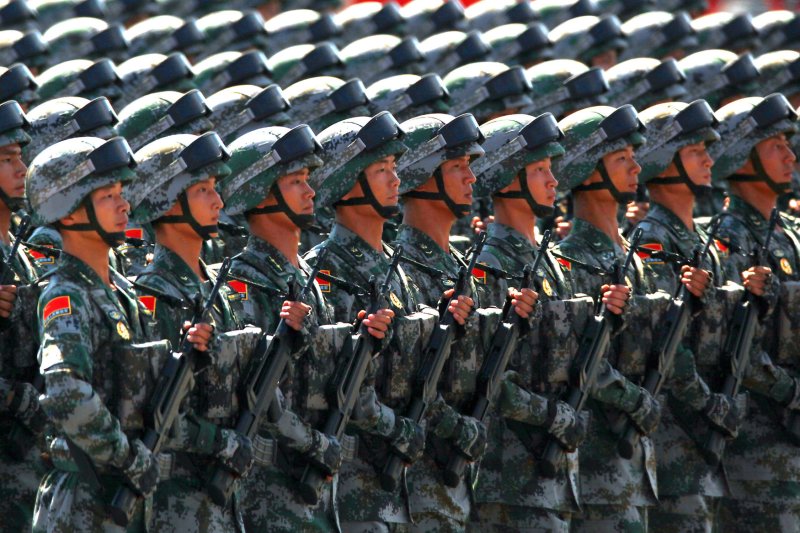New research suggests chance played a role in the emergence of war as a male-dominated activity. Photo by Stephen Shaver/UPI |
License Photo
Aug. 15 (UPI) -- Until recent, war was almost exclusively the dominion of men. But why?
A new mathematical model developed by researchers at the University of St. Andrews suggests men may have taken on war-waging duties as a matter of happenstance -- by chance.
Researchers have previously argued that because males are on average bigger and stronger than females, they were better proportioned for fighting.
But a new model, designed to identify how male and female participation in war influence each other and evolve over time, showed chance can explain the link between men and making war.
"Our study shows that these differences are not needed to explain why women generally don't go to war," Alberto Micheletti, an evolutionary biologist at St. Andrews, said in a news release. "We found that the more one sex participates in warfare, the less the other sex is incentivized to do so. Over time, this leads to only one sex fighting in battle."
Behavioral traits among early human populations may have made men the first choice for tribal violence.
"An initial male-bias in participation in war would have encouraged more men to fight -- eventually leading to male-only war parties," Micheletti said.
Had gendered societal expectations been among early human groups, roles could have been reversed, researchers pointed out.
"Ultimately it could all be down to chance," Micheletti said. "Had women been more aggressive at the time when war first evolved, they could have been the warring sex. This is observed in other species: for example, in spotted hyenas, only females attack other packs. But, in our own species, this was not the case."
Researchers also acknowledged that biological factors could have influenced males' early proclivity for physical combat. Competition for mating opportunities may have encouraged more aggressive behavior among males.
"In this way, the target of male aggression changed from members of their own group, to men from other groups -- and resulted in raids or battles aimed at securing additional resources or mating partners from further afield," Micheletti said.
The circumstances that set stage for male-dominant violence could explain why violence-related psychological disorders predominantly affect men.
"Asking a simple question about a basic sex difference in human behavior helped us understand the origins of warfare and the ways in which our ancestral past may still -- at least in part -- affect us today," Micheletti said.
Researchers shared their analysis in the journal Proceedings of the Royal Society B.















